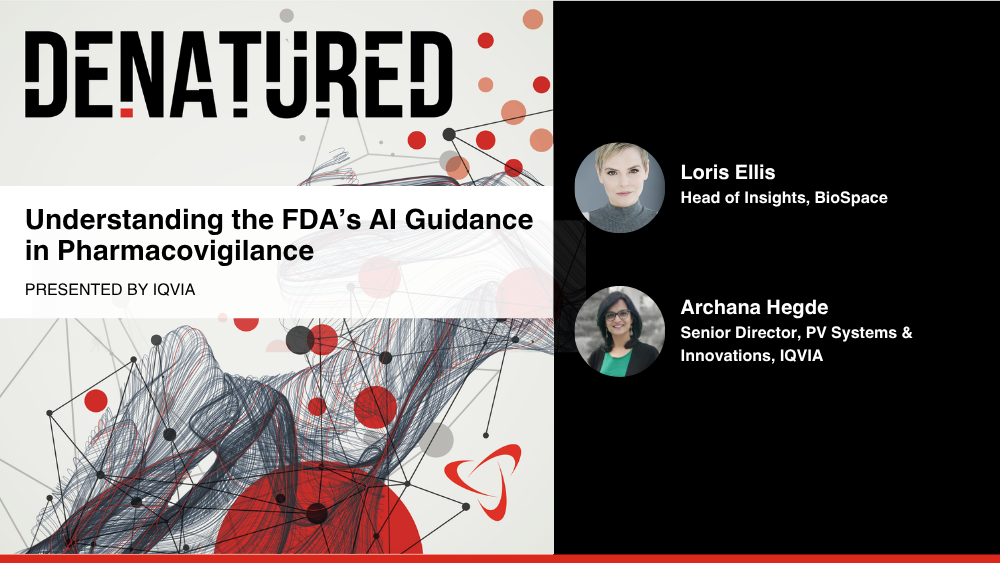43% ORR per IRC in Patients with Double-Refractory Follicular Lymphoma
68% ORR per IRC in Patients with Double-Refractory Small Lymphocytic Lymphoma
Duvelisib Remains Well Tolerated in Long-Term Follow Up
BOSTON--(BUSINESS WIRE)--Verastem, Inc. (NASDAQ: VSTM), focused on discovering and developing drugs to improve the survival and quality of life of cancer patients, today announced the presentation of long-term follow-up data from the DYNAMO™ study, which met its primary endpoint of Overall Response Rate (ORR; p=0.0001) at the final analysis, at the 22nd Congress of the European Hematology Association (EHA), being held June 22-25, 2017 in Madrid, Spain. DYNAMO is a Phase 2 clinical study evaluating duvelisib, the Company’s investigational oral monotherapy, dual inhibitor of phosphoinositide-3-kinase (PI3K)-delta and PI3K-gamma, in patients with indolent non-Hodgkin lymphoma (iNHL) whose disease is refractory to both rituximab and chemotherapy or radioimmunotherapy. The presentations focus on the subsets of patients with follicular lymphoma (FL) or small lymphocytic lymphoma (SLL) who were enrolled in DYNAMO.
Oral Duvelisib in Patients with Double-Refractory FL
With 18 months of follow-up, the data continues to be consistent with the primary analysis. Of the 83 patients with double-refractory FL enrolled in DYNAMO (median 3 prior anticancer regimens [range 1-10]), 36 responded, which included 1 (1%) complete response (CR) and 35 (42%) partial responses (PR), for an ORR of 43% as determined by an independent review committee. Responses generally occurred shortly after the start of treatment (median 2 months). Notably, 83% of evaluable patients with FL treated with duvelisib had a reduction in the size of their target lymph nodes. Median duration of response was 7.9 months, median progression-free survival was 8.3 months, and median overall survival was 27.8 months.
The safety profile of duvelisib monotherapy remains consistent with what has been previously reported in iNHL and other advanced hematologic malignancies. In these double-refractory FL patients, the most common Grade =3 hematologic adverse events were neutropenia (22%), anemia (13%) and thrombocytopenia (9%). Diarrhea was the most frequently reported nonhematologic adverse event (47%; 16% Grade = 3). As expected in a heavily pretreated and refractory patient population, severe infections were observed (20%). Pneumonitis and colitis remained relatively uncommon (each 5%). Treatment discontinuations attributed to severe adverse events were infrequent, suggesting that these events were generally manageable.
Oral Duvelisib in Patients with Double-Refractory SLL
Of the 28 patients with double-refractory SLL enrolled in DYNAMO (median 3 prior anticancer regimens [range 1-18]), 19 responded, all of which were PRs, for an ORR of 68% as determined by an independent review committee. Responses generally occurred shortly after the start of treatment (median 2 months). Importantly, 100% of evaluable patients with double-refractory SLL treated with duvelisib had a reduction in the size of their target lymph nodes. With a median time on duvelisib of 12 months, median duration of response was 10.1 months, median progression-free survival was 11.7 months, and median overall survival was 28.9 months.
In these double-refractory SLL patients, the most common Grade =3 hematologic adverse events were neutropenia (32%), thrombocytopenia (21%) and anemia (21%). The most frequently reported Grade =3 nonhematologic adverse events were pneumonia (14%), increases in alanine aminotransferase (7%) and aspartate aminotransferase (11%), and diarrhea (11%). As expected in a heavily pretreated and refractory patient population, severe infections were observed (36%). Colitis occurred in 3 (11%) SLL patients. No double-refractory SLL patients experienced pneumonitis. Treatment discontinuations attributed to the most common adverse events were infrequent, suggesting that these events were generally manageable.
“We believe that oral duvelisib has the potential to be an important new treatment option for lymphoma patients,” commented Pier Luigi Zinzani, MD, PhD, of the University of Bologna Institute of Hematology and an Investigator participating in the study. “What I find particularly encouraging are the responses we saw in patients with double-refractory disease, a population with few treatment options left. The data we are presenting at EHA continue to demonstrate that duvelisib monotherapy can achieve meaningful and durable responses.”
Hagop Youssoufian, MSc, MD, Head of Hematology and Oncology Development at Verastem, stated, “The data from DYNAMO remain positive, and reporting the results from long-term follow-up is important for the medical community and for the overall development of duvelisib. Oral duvelisib monotherapy has demonstrated clinical activity across a number of hematologic cancers, including chronic lymphocytic leukemia, iNHL, and T-cell lymphoma. Based on the results we have seen thus far, we remain fully committed to exploring duvelisib’s potential across a wide range of lymphoid malignancies.”
Details for the presentations at EHA 2017 are:
Oral Presentation
Title: DYNAMO: A Phase 2 Study Demonstrating the Clinical
Activity of Duvelisib in Patients with Double-Refractory Follicular
Lymphoma
Abstract code: S777
Topic: Indolent
Non-Hodgkin lymphoma – Clinical
Session title: Follicular
lymphoma – Clinical
Location: Hall C
Date and time:
Sunday, June 25, 2017, 8:45 – 9:00 CET
A copy of the oral presentation slides will be available here following the conclusion of the oral presentation.
E-Poster Presentation
Title: DYNAMO: The Clinical Activity of Duvelisib in Patients
with Double-Refractory Small Lymphocytic Lymphoma in a Phase 2 Study
Abstract
code: E1130
Topic: Indolent Non-Hodgkin lymphoma –
Clinical
Location: e-poster screens
Date and time:
Friday, June 23, 2017 from 9:30 CET to Saturday, June 24, 2017 at 19:00
CET
A copy of the e-poster presentation will be available here following the conclusion of the meeting.
More About the Phase 2 DYNAMO™ Study
DYNAMO™ is a Phase 2, single-arm study, which evaluated the efficacy and safety of duvelisib 25 mg twice daily as monotherapy in 129 iNHL patients, including follicular lymphoma (n=83), small lymphocytic lymphoma (n=28), and marginal zone lymphoma (n=18) whose disease has progressed and are refractory to rituximab and to either chemotherapy or radioimmunotherapy. The primary endpoint of the study was ORR as assessed by an independent review committee. DYNAMO met its primary ORR endpoint (p=0.0001) at the final analysis.
About the Tumor Microenvironment
The tumor microenvironment encompasses multiple tumor and non-tumor cell populations and an extracellular matrix that support cancer cell survival. This includes immunosuppressive regulatory T-cells, myeloid-derived suppressor cells, tumor-associated macrophages, cancer-associated fibroblasts, and extracellular matrix proteins that can hamper the entry and therapeutic benefit of cytotoxic T-cells and anti-cancer drugs. In addition to targeting the proliferative and survival signaling of cancer cells, Verastem’s product candidates, including duvelisib and defactinib, also target the tumor microenvironment to potentially improve response to therapy.
About Duvelisib
Duvelisib is an investigational, dual inhibitor of phosphoinositide 3-kinase (PI3K)-delta and PI3K-gamma, two enzymes known to help support the growth and survival of malignant B-cells and T-cells. PI3K signaling may lead to the proliferation of malignant B-cells and is thought to play a role in the formation and maintenance of the supportive tumor microenvironment.1,2,3 Duvelisib is currently being evaluated in late- and mid-stage clinical trials, including DUO™, a randomized, Phase 3 monotherapy study in patients with relapsed or refractory CLL,4 and DYNAMO™, a single-arm, Phase 2 monotherapy study in patients with refractory iNHL that achieved its primary endpoint of ORR.5 Duvelisib is also being evaluated for the treatment of hematologic malignancies through investigator-sponsored studies, including T-cell lymphoma.6 Information about duvelisib clinical trials can be found on www.clinicaltrials.gov.
About Verastem, Inc.
Verastem, Inc. (NASDAQ: VSTM) is a biopharmaceutical company focused on discovering and developing drugs to improve outcomes for patients with cancer. Verastem is currently developing duvelisib, a dual inhibitor of PI3K-delta and PI3K-gamma, which has successfully met its primary endpoint in a Phase 2 study in iNHL and is currently being evaluated in a Phase 3 clinical trial in patients with CLL. In addition, Verastem is developing the FAK inhibitor defactinib, which is currently being evaluated in three separate clinical collaborations in combination with immunotherapeutic agents for the treatment of several different cancer types, including pancreatic cancer, ovarian cancer, non-small cell lung cancer, and mesothelioma. Verastem’s product candidates seek to treat cancer by modulating the local tumor microenvironment, enhancing anti-tumor immunity, and reducing cancer stem cells. For more information, please visit www.verastem.com.
Verastem, Inc. forward-looking statements notice:
This press release includes forward-looking statements about Verastem's strategy, future plans and prospects, including statements regarding the development and activity of Verastem's investigational product candidates, including duvelisib and defactinib, and Verastem's PI3K and FAK programs generally, the structure of our planned and pending clinical trials and the timeline and indications for clinical development. The words "anticipate," "believe," "estimate," "expect," "intend," "may," "plan," "predict," "project," "target," "potential," "will," "would," "could," "should," "continue," and similar expressions are intended to identify forward-looking statements, although not all forward-looking statements contain these identifying words. Each forward-looking statement is subject to risks and uncertainties that could cause actual results to differ materially from those expressed or implied in such statement. Applicable risks and uncertainties include the risks that the preclinical testing of Verastem's product candidates and preliminary or interim data from clinical trials may not be predictive of the results or success of ongoing or later clinical trials; that data may not be available when expected; that enrollment of clinical trials may take longer than expected; that our product candidates will cause unexpected safety events or result in an unmanageable safety profile as compared to their level of efficacy; that duvelisib will be ineffective at treating patients with lymphoid malignancies; that Verastem will be unable to successfully initiate or complete the clinical development of its product candidates; that the development of Verastem's product candidates will take longer or cost more than planned; that Verastem may not have sufficient cash to fund its contemplated operations; that Verastem or Infinity Pharmaceuticals, Inc. will fail to fully perform under the duvelisib license agreement; that Verastem will not pursue or submit regulatory filings for its product candidates; and that Verastem's product candidates will not receive regulatory approval, become commercially successful products, or result in new treatment options being offered to patients. Other risks and uncertainties include those identified under the heading "Risk Factors" in Verastem's Annual Report on Form 10-K for the year ended December 31, 2016 and in any subsequent filings with the U.S. Securities and Exchange Commission. The forward-looking statements contained in this press release reflect Verastem's views as of the date of this release, and Verastem does not undertake and specifically disclaims any obligation to update any forward-looking statements.
References
1 Winkler et al. PI3K-delta and PI3K-gamma inhibition by
IPI-145 abrogates immune responses and suppresses activity in autoimmune
and inflammatory disease models. Chem Biol 2013; 20:1-11.
2 Reif
et al. Cutting Edge: Differential roles for phosphoinositide 3 kinases,
p110-gamma and p110-delta, in lymphocyte chemotaxis and homing. J
Immunol 2004:173:2236-2240.
3 Schmid et al. Receptor
tyrosine kinases and TLR/IL1Rs unexpectedly activate myeloid cell PI3K,
a single convergent point promoting tumor inflammation and progression.
Cancer Cell 2011;19:715-727.
4 www.clinicaltrials.gov,
NCT02004522
5 www.clinicaltrials.gov,
NCT01882803
6 www.clinicaltrials.gov,
NCT02783625, NCT02783625, NCT02158091




